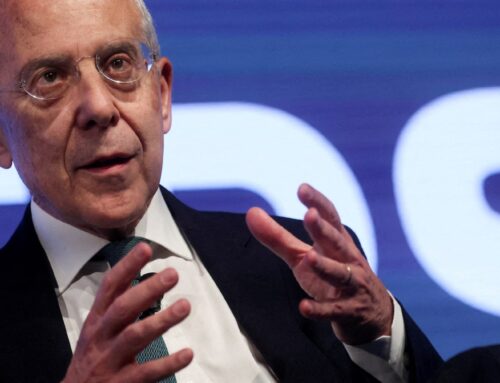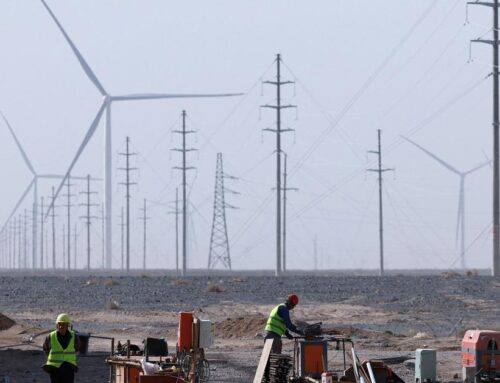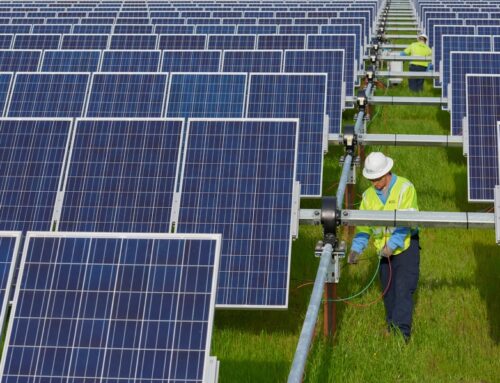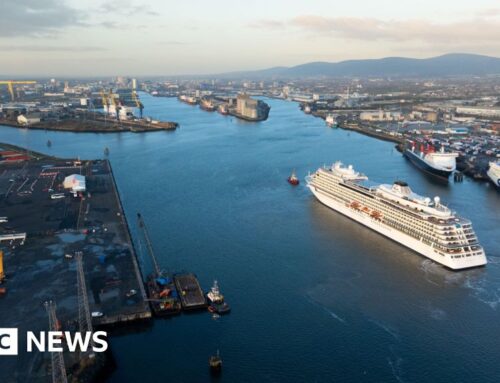Angela Wiebeck: ‘2025 is the year that impact investing has gone mainstream’
November 6, 2025

Angela Wiebeck is taking over as CEO of Impact Europe, the continent’s network for the impact investment community, at a time when the sector is facing strong economic, political and regulatory challenges. But, she says, momentum behind impact investing is likely to build.
She succeeds Roberta Bosurgi, who assumed the lead role at the organisation in 2019, when it was known as the European Venture Philanthropy Association.
During Bosurgi’s tenure, Impact Europe expanded to host more than 350 members including foundations, impact funds, banks and financial institutions, as well as corporate impact investors and public funding bodies. It also intensified links with partners in over 40 countries.
Wiebeck brings extensive experience in sustainable and impact investing to the role, having spent 17 years at UBS in senior positions, including as head of sustainability projects, where she advanced the bank’s net-zero commitment and the adoption of the ‘Principles for Responsible Banking’. Also at UBS, she was head of impact investing and led the implementation of the banking group’s sustainability strategy across its divisions, including the UBS Optimus Foundation, from 2017 to 2021.
More recently, Wiebeck worked as chief sustainability officer at Aquila Capital, where she sought to put decarbonisation at the heart of the company’s business strategy and advised asset owners on their renewable energy decisions.
At Impact Europe, Wiebeck wants to deploy her experience in bringing investors together to further the organisation’s role as a platform for collaboration, alignment and the creation of standards across the impact space.
It may not be the easiest time to take over as an advocate for impact investment, given the headwinds buffeting the sector. These range from higher interest rates and inflation to geopolitical fragmentation and concerns over the direction of European Union regulation covering sustainable lending. But Wiebeck says she is confident that investing for impact has reached a critical mass on the continent that will allow it to accelerate.
“When I started in this space, we were talking about how impact investing was going to become mainstream. But I think 2025 is the year impact investing has gone mainstream, because our market sizing shows the biggest impact capital providers in Europe are now institutional investors, including pension funds and insurance companies,” she says.
A market sizing report researched by Impact Europe for the European Impact Investing Consortium, published in late 2024, showed that institutional investors, including pension funds and insurance companies, had become the primary contributors to impact investments in private, unlisted markets, accounting for 28% of total capital made available to impact investors in Europe.
This total market was estimated to have grown to €190bn. However, that still only represented 2.5% of the €7.6trn of overall assets under management that the researchers considered could be eligible for impact investing on the continent’ suggesting a significant potential for growth.
“We are facing headwinds, but they are just changing how the marketplace is evolving. I do think that larger investments and funds are the future – scale is becoming more important. And these will be focused more on the topics we need to be on top of, like climate adaptation, food scarcity and affordable housing,” Wiebeck says.
Central to Impact Europe’s strategy will be building further on its already close ties with other prominent forces in impact investing such as GSG Impact and the Global Impact Investing Network (GIIN), with which it works on a number of issues, including the harmonisation of standards.
The organisation is also stepping up efforts to boost the deployment of catalytic capital and blended finance, building on work such as its partnership with the Catalytic Capital Consortium. Wiebeck says Europe’s leading position in the global impact movement with over 70% of the world’s sustainable funds estimated to be managed on the continent, provides a strong foundation to innovate and scale new blended and catalytic finance models.
High on the “to do” list for Wiebeck will be leveraging the organisation’s prominent voice in talks between investors and the European Commission to resolve uncertainties over the regulatory environment for sustainable investment. The EU’s Sustainable Finance Disclosure Regulation (SFDR) is currently under review, and the status and definition of impact investment have yet to be determined.
“The main challenge we face in Europe is that there is still not full alignment in the institutional space around what impact investing really entails and the discussion around the SFDR has muddied these waters,” she says, noting that this has deterred some potential entrants to impact investing to avoid being accused of “impact washing”.
Wiebeck sees the need for a balance to be struck between the need for discussion and action.
“It is important that we don’t lose our focus on the measurement and management of impact – that’s the gold standard – and we need to scale with integrity. But we also need to be careful that we don’t make perfect the enemy of good through lengthy debating, when we agree on 80% to 90% of what needs to happen,” she says.
Wiebeck’s first public duties in her new role will be at the organisation’s annual Impact Week event, to be held in Malmö, Sweden, on 18–20 November.
Search
RECENT PRESS RELEASES
Related Post




